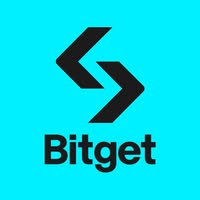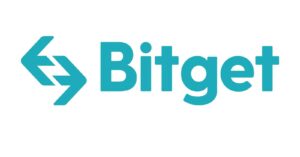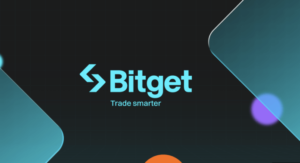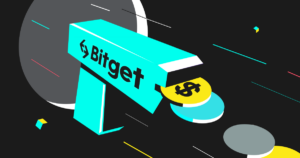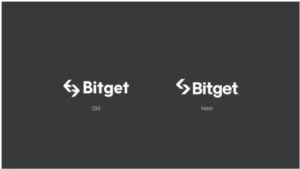When it comes to navigating the vast landscape of cryptocurrency exchanges, choosing the right platform can significantly influence your trading success and overall experience. Among the top contenders in the industry, bitget vs binance often emerge as popular choices due to their extensive offerings and reputation. This comprehensive comparison aims to dissect these two giants across various dimensions, helping traders make informed decisions tailored to their needs.
Bitget vs Binance: A Comprehensive Comparison

The debate between bitget vs binance is a hot topic among crypto enthusiasts and professional traders alike. Both platforms boast impressive features, vast user bases, and innovative trading tools. However, their core philosophies, fee structures, security protocols, and user interfaces vary considerably. Understanding these differences is key to selecting a platform that aligns with your trading style and goals.
In this segment, we’ll delve into each platform’s history, market position, and general reputation to set the stage for more detailed comparisons.
Bitget is a relatively newer player but has gained rapid popularity through its focus on derivatives trading, innovative social trading features, and a user-friendly interface. It emphasizes security and transparency, aiming to cater to both novice and experienced traders.
Binance, on the other hand, is undoubtedly one of the largest and most established exchanges globally. Since its inception in 2017, it has expanded its services beyond spot trading to include futures, options, staking, savings, and even its own blockchain ecosystem. Its extensive liquidity pools and broad asset support make it a preferred choice for high-volume traders.
In the ongoing bitget vs binance discussion, traders often consider factors like available trading products, platform stability, global reach, and community trust. As we analyze these aspects, keep in mind that the best platform is subjective—dependent on individual preferences, trading goals, and geographical location.
Trading Features: Bitget vs Binance

Trading features form the backbone of any crypto exchange. They directly influence how efficiently and effectively traders can execute their strategies. Both bitget and binance offer a wide array of trading functionalities, but nuances in their offerings can impact traders differently.
Before diving into specifics, it’s essential to recognize that the breadth of trading features can enhance opportunities but also introduce complexity. The ideal platform balances advanced tools with an intuitive interface.
Derivatives and Margin Trading Capabilities
Binance leads in offering an extensive suite of derivatives and margin trading options. Its futures platform supports perpetual swaps, quarterly contracts, and options on numerous cryptocurrencies. Binance also provides leveraged trading up to a substantial multiple (up to 125x), catering to high-risk, high-reward traders. Its options trading and structured products further expand possibilities for sophisticated traders seeking hedging or income strategies.
Bitget specializes heavily in derivatives, particularly focusing on futures and copy trading. Its flagship feature is social trading, allowing users to copy trades from expert traders. Bitget offers perpetual contracts with leverage up to 100x on selected assets. While its selection of derivatives isn’t as vast as Binance’s, the platform prioritizes user experience and risk management, making it suitable for traders interested in leveraged trading with guidance.
Spot Trading and Market Depth
Binance boasts one of the highest liquidity pools in the world, resulting in tight spreads and quick executions. Its spot trading platform is robust, with a straightforward interface equipped with advanced charting tools, order types, and real-time data analytics. The depth of market data facilitates precise entry and exit points, especially for high-volume traders.
Bitget offers a competitive spot trading platform, though it primarily emphasizes derivatives. Its spot trading is reliable, with sufficient liquidity for most retail traders. The interface is clean, although it may lack some advanced charting features present on Binance. Nevertheless, for users focused on derivatives, the spot market is a secondary priority.
Advanced Trading Tools and Indicators
Binance equips traders with a comprehensive suite of technical analysis tools, customizable charts, and indicators. It also features API integration for algorithmic trading and third-party tools. The platform supports complex order types like OCO (One-Cancels-the-Other) and trailing stops, which are vital for seasoned traders.
Bitget provides essential trading tools and integrates social trading signals, making it accessible for beginners. While it offers basic charting and order types, it lacks some of the advanced features Binance provides. Its focus remains on simplicity and ease of use, with plans to expand advanced functionalities.
Summary of Trading Features
- Binance excels in derivatives, offering diversified products, high leverage, and advanced tools.
- Bitget specializes in derivatives with social trading features, emphasizing user engagement and risk management.
- Both platforms support spot trading, but Binance’s liquidity and variety give it an edge for high-volume and institutional traders.
User Experience: Bitget vs Binance
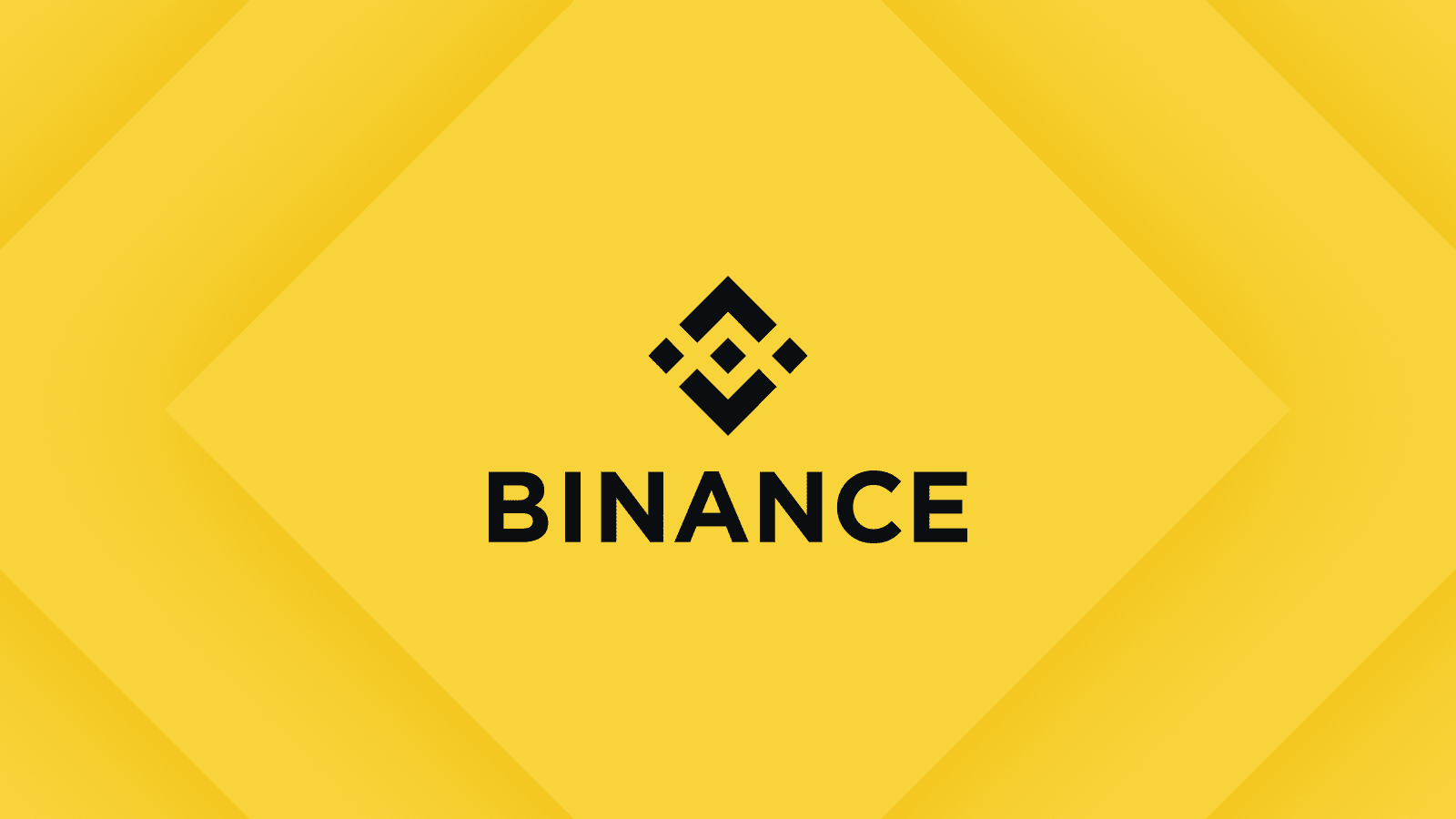
A smooth, intuitive user experience can make or break your trading journey. Ease of navigation, account setup, educational resources, and platform stability collectively influence user satisfaction.
Interface Design and Ease of Navigation
Binance‘s interface caters to a wide audience—from novices to professionals. Its platform combines simplicity with depth, featuring a default “Basic” mode for beginners and an “Advanced” mode packed with technical tools. The layout is customizable, allowing users to arrange charts, order books, and trading pairs conveniently.
Bitget offers a sleek, modern interface designed with usability in mind. Its layout emphasizes clarity, with straightforward menus and easy access to derivative products. The platform’s minimalist design reduces clutter, which benefits new traders, though some advanced traders may find it lacking in customization options.
Account Setup and Verification Process
Binance employs a multi-tiered verification process aligned with international KYC standards. While it may take some time to complete the verification, it allows broader access to features like fiat withdrawals, higher limits, and enhanced security.
Bitget maintains a relatively streamlined onboarding process. Basic account creation is quick, with optional KYC procedures for increased limits and features. The process is generally faster, appealing to traders who prioritize swift access to markets, though some security-minded users may prefer Binance’s more rigorous approach.
Platform Stability and Performance
Both platforms are generally stable under normal trading conditions. During high volatility or market surges, however, platform performance can differ.
Binance has invested heavily in infrastructure, ensuring minimal downtime and fast execution speeds even during peak times. Its global server network enhances reliability, which is critical for high-frequency traders.
Bitget also boasts a dependable platform, though occasionally reports of minor outages during extreme market events have surfaced. Nonetheless, for most daily trading activities, stability remains satisfactory.
Educational Resources and Community Support
Binance offers extensive educational materials, including tutorials, webinars, and a dedicated Academy section. Its large user base fosters active community forums and support channels.
Bitget provides a growing library of articles, video tutorials, and social media engagement. Its community is smaller but increasingly active, emphasizing personalized support and direct communication with customer service.
Personal Insights and Analysis
From a user experience perspective, Binance’s layered approach appeals to a diverse demographic, but its complexity might intimidate newcomers. Conversely, Bitget’s focus on simplicity and social features makes it more approachable for beginners or those interested in social trading. Experienced traders valuing advanced customization tend to gravitate toward Binance.
Security Measures: Bitget vs Binance

Security is paramount in cryptocurrency trading. Both platforms implement robust measures; however, their approaches and track records differ.
Security Protocols and Technologies
Binance employs industry-standard security practices such as Two-Factor Authentication (2FA), withdrawal whitelist, cold storage of assets, and regular security audits. It has also integrated biometric logins on mobile devices and utilizes hardware security modules to safeguard private keys.
Bitget also adopts essential security measures, including 2FA, cold storage for funds, and anti-phishing codes. It emphasizes transparency in its security practices and conducts periodic security assessments.
Past Security Incidents and Response
Binance experienced a notable security breach in 2019 when hackers exploited API vulnerabilities and social engineering tactics, stealing over 40 million USD worth of assets. Its prompt response involved executing a recovery plan, covering losses with its insurance fund, and enhancing security protocols.
Bitget reports no significant security breaches to date. Its proactive stance includes regular audits, bug bounty programs, and comprehensive incident response plans, reinforcing its commitment to safeguarding user assets.
Funds Insurance and Cold Storage Policies
Binance maintains approximately 90% of user assets in cold storage, reducing vulnerability to hacking attempts. Its Secure Asset Fund for Users (SAFU) acts as an insurance reserve to protect users during unforeseen incidents.
Bitget similarly prioritizes cold storage and maintains an internal insurance system for user protection. Transparency regarding reserves and security audits adds confidence to its security posture.
Regulatory Compliance and Legal Framework
Binance has faced scrutiny from regulators worldwide, leading to adjustments in operational policies and compliance measures. Despite challenges, it continues to adapt to evolving regulations.
Bitget adheres to applicable laws in jurisdictions where it operates, emphasizing compliance and licensing. Its transparent legal stance helps build trust among users concerned about regulatory risks.
Personal Analysis and Final Thoughts
While both platforms invest heavily in security, Binance’s longer track record, larger user base, and extensive security infrastructure give it an edge. That said, no platform is entirely immune; traders should always employ personal security best practices, such as enabling 2FA and using hardware wallets for long-term storage.
Fees and Charges: Bitget vs Binance
Fee structures can significantly impact profitability, especially for active traders. Both platforms adopt different models, with variations based on trading volume, product type, and user tier.
Trading Fees and Commissions
Binance utilizes a tiered fee schedule. For spot trading, fees start at 0.1% per trade, with discounts available for high-volume traders or Binance Coin (BNB) holders. Futures trading fees are similar but often lower for makers (0.02%) and takers (0.04%).
Bitget charges flat fees for spot trading at around 0.1%, aligning with Binance. Its derivatives trading fees are comparable, with maker rebates and incentives for liquidity providers. The platform promotes competitive rates to attract active traders.
Deposit and Withdrawal Costs
Binance generally waives deposits in most cryptocurrencies but charges network fees for withdrawals, which vary depending on the asset. Fiat deposits via bank transfer may incur additional charges depending on the method.
Bitget offers free crypto deposits (though network fees apply) and charges withdrawal fees similar in structure to Binance. Fiat deposit options are limited but expanding, with associated processing costs.
Inactivity and Other Charges
Binance does not impose inactivity fees, but certain advanced features or specific account tiers might have associated costs.
Bitget likewise avoids inactivity fees but charges for premium services or advanced API usage in some cases.
Hidden Fees and Cost Transparency
Both platforms maintain transparency regarding fee structures. Traders should review the latest fee schedules regularly, as promotions or policy adjustments can alter costs.
Personal Insights
For high-volume traders, Binance’s discounted tier system often results in better rates. Casual traders or those just starting may find both platforms similarly priced. It’s essential to factor in withdrawal fees, especially if frequent transfers occur.
Supported Currencies: Bitget vs Binance
A critical consideration is the range of supported assets, influencing diversification and trading opportunities.
Number of Cryptocurrencies Supported
Binance supports over 600 cryptocurrencies across spot, futures, and other markets, covering major coins, altcoins, and emerging tokens. Its extensive list enables traders to diversify portfolios and explore niche projects.
Bitget offers a more curated selection, supporting around 80-150 cryptocurrencies. Focus areas include top-tier coins and derivatives based on popular assets like Bitcoin, Ethereum, and Ripple, along with some emerging tokens.
Fiat Currency Support and Payment Options
Binance supports numerous fiat currencies, including USD, EUR, GBP, JPY, and others, allowing fiat-to-crypto transactions via bank transfer, credit card, and third-party payment services.
Bitget‘s fiat options are more limited but are gradually expanding. Currently, it supports a handful of currencies and payment methods, mainly focusing on regions where it has a strong presence.
Token Listing Policies and Longevity
Binance is known for rigorous listing processes, ensuring listed tokens meet certain standards of utility and security. This vetting process maintains a high-quality ecosystem but can delay the addition of new tokens.
Bitget has a more streamlined listing process, allowing quicker access for new tokens, which benefits traders seeking exposure to emerging projects but requires vigilance regarding project quality.
Asset Management and Wallet Support
Both platforms provide secure wallet storage, with Binance’s wallet infrastructure being more mature due to its larger ecosystem. They support spot, derivatives, and staking products, catering to different investment strategies.
Conclusion on Supported Currencies
While Binance’s broad asset support offers more trading diversity, Bitget’s curated selection ensures quality over quantity. Traders should choose based on the need for variety versus security and project vetting.
Customer Support: Bitget vs Binance
Reliable customer support can provide peace of mind, especially during technical issues or disputes.
Support Channels and Accessibility
Binance offers 24/7 customer support via live chat, email, and a comprehensive help center. Its multilingual support caters to a global user base, with regional support centers in various countries.
Bitget also provides 24/7 support through live chat, email, and extensive FAQ sections. Its localized support services are growing, but users sometimes report longer response times compared to Binance.
Quality and Responsiveness
Binance‘s support responsiveness is generally high, particularly via live chat, which is prioritized for premium customers. However, during high traffic periods, delays can occur.
Bitget has made strides in improving response times but still faces occasional delays during peak periods. Its support team is praised for personalized assistance and proactive communication.
Community Forums and Educational Support
Binance hosts active community forums, webinars, and educational programs, fostering an engaged user base. Its extensive documentation reduces dependence on support staff.
Bitget emphasizes community engagement through social media, tutorials, and webinars, aiming to educate users and foster loyalty.
Regulatory and Dispute Resolution
Both platforms adhere to regional regulations and have dispute resolution mechanisms. Binance’s widespread regulatory challenges have pushed it to strengthen compliance and transparency.
Personal Take
For traders requiring immediate help, Binance’s extensive support infrastructure often delivers quicker resolutions. Nonetheless, Bitget’s support quality is commendable, particularly for newer or less complex inquiries.
Mobile App Performance: Bitget vs Binance
Mobile accessibility is crucial for active traders who need to monitor markets and execute trades on the go.
App Design and User Interface
Binance‘s mobile app mirrors its web platform, providing a professional, feature-rich interface. It offers customization, quick order execution, and real-time alerts. The app balances complexity with usability, suitable for traders comfortable with advanced tools.
Bitget‘s app emphasizes simplicity, with a clean layout and straightforward navigation. While it may lack some advanced features found on Binance, it is highly responsive and optimized for quick trades.
Performance and Stability
Both apps are regularly updated, with Binance’s app demonstrating high stability even during volatile markets. Small lag or crashes are rare but possible during extreme conditions.
Bitget‘s app performs reliably for standard trading activities, with occasional minor bugs quickly patched through updates.
Features and Functionalities
Binance‘s app offers a comprehensive suite—spot and futures trading, staking, savings, analytics, and news feeds. It also supports biometric login and push notifications.
Bitget provides core functionalities with a focus on derivatives trading, social trading, and portfolio management. Its features are expanding but currently are slightly less comprehensive than Binance’s.
User Feedback and Ratings
On app stores, Binance enjoys high ratings, reflecting user satisfaction with performance and features. Bitget also scores well, especially among users valuing simplicity and social trading.
Final Insight
For traders needing advanced charting, a broad feature set, and high stability, Binance’s mobile app is a clear leader. However, for quick, straightforward trades and social engagement, Bitget’s app suffices.
Liquidity Analysis: Bitget vs Binance
Liquidity is vital for executing large trades without significant slippage. The more liquid an exchange, the easier it is to enter and exit positions smoothly.
Liquidity Metrics and Volume
Binance consistently ranks as the world’s most liquid cryptocurrency exchange, with daily trading volumes often exceeding hundreds of billions of dollars across spot and derivatives markets.
Bitget has seen rapid growth, with daily volumes reaching several billion dollars, especially in derivatives. While not matching Binance’s scale, it provides sufficient liquidity for most retail traders.
Impact on Trading Efficiency
High liquidity relates to narrower bid-ask spreads, faster order fills, and less price manipulation. Binance’s dominance in this space makes it highly attractive for institutional and high-frequency traders.
Bitget offers reasonable liquidity for retail trading, with particular strength in derivatives markets. Its social trading features can sometimes influence liquidity dynamics, depending on trader activity.
Regional and Asset-specific Liquidity
Binance’s global presence ensures high liquidity across most regions and asset classes. Conversely, bitget‘s liquidity is stronger in regions where it has concentrated marketing efforts, notably in Asia.
Market Depth and Slippage
In high-volatility environments, Binance maintains deep order books, minimizing slippage for large orders. Bitget’s order books are sufficiently deep but can be prone to slippage during extreme swings.
Final Remarks on Liquidity
For high-volume, institutional, or arbitrage traders, Binance’s liquidity advantages are indispensable. Standard retail traders will find Bitget’s liquidity adequate for their strategies.
Conclusion: Choosing Between Bitget and Binance
Selecting the right cryptocurrency exchange hinges on individual trading needs, experience level, security concerns, and asset preferences. Binance stands out with its unparalleled liquidity, diverse product offerings, advanced trading tools, and extensive educational resources—catering to professional traders and those seeking comprehensive market access. Its robust security measures and global regulatory adaptations add layers of trust, making it suitable for high-stakes trading.
Bitget, while younger, offers a user-friendly interface, innovative social trading features, and competitive derivative trading options. Its focus on simplicity, community engagement, and targeted regional presence make it an attractive platform for beginners and traders interested in social and copy trading.
Ultimately, if you prioritize liquidity, advanced features, and a broad asset universe, binance remains the top option. Conversely, if you value ease of use, social trading, and a specialized focus on derivatives, bitget presents a compelling alternative. Both platforms continue evolving, so assessing your specific requirements and experimenting with demo accounts can help determine the perfect fit in the ongoing bitget vs binance debate.

Jamie Redman is the News Lead at Bitcoin.com News and a financial tech journalist living in Florida. Redman has been an active member of the cryptocurrency community since 2011. He has a passion for Bitcoin, open-source code, and decentralized applications. Since September 2015, Redman has written more than 10,000+ articles for Bitcoin.com News about the disruptive protocols emerging today.

